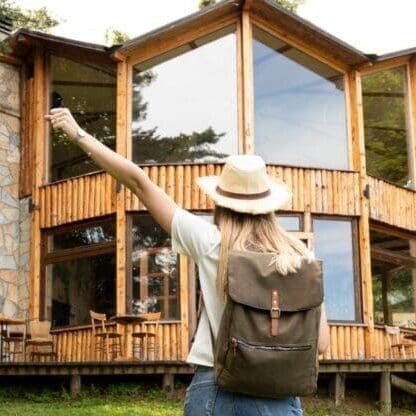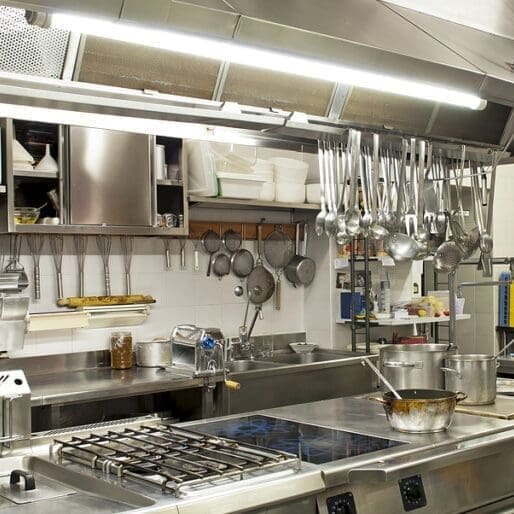 From global pandemics and protracted lockdowns to worldwide economic volatility and a devastating supply chain crisis, businesses in every industry have suffered one blow after another in recent years. It’s the hospitality industry, however, that has been hit particularly hard.
From global pandemics and protracted lockdowns to worldwide economic volatility and a devastating supply chain crisis, businesses in every industry have suffered one blow after another in recent years. It’s the hospitality industry, however, that has been hit particularly hard.
Today, though, as the world emerges into a new, post-pandemic normal, hoteliers and restaurateurs must discover innovative ways to keep pace both with pent-up demand and with changing guest needs and expectations. Perhaps one of the most promising ways for hotel and restaurant owners to do this is by unleashing the tremendous power of the Internet of Things (IoT). Indeed, with a bit of strategy, a dash of know-how, and a spark of creativity, the IoT may be exactly the thing entrepreneurs need to revolutionize the hospitality industry. We’ll show you how.
Smart hotel rooms
You may not be exactly clear about what the IoT is, but odds are, you’ve already integrated many IoT devices into your home as well as your business. The IoT simply refers to the vast array of technologies that use the internet to “communicate” with one another and, in the process, make all our lives simpler, more convenient, and more fun.
Smart technologies, for instance, are among the most well-known and highly popular IoT categories, but they’re not just for private residences. In fact, you can easily transform hotel rooms into smart rooms, providing your guests with the same kind of luxury experience they would enjoy in the most high-tech homes.
Your smart hotel room might be outfitted, for example, with door locks, lights, blinds, thermostats, and entertainment systems that can all be controlled by voice or smartphone. After a night in a smart room, they’ll never want to return to a traditional hotel again!
Hyper-personalized guest experience
Perhaps one of the greatest attributes of IoT technology is its capacity to allow you to offer your guests a truly personalized experience. IoT devices, such as the recently introduced “SmartMirror” can enable guests to browse through various voice-activated menus on options ranging from dining to entertainment to room temperature and lighting preferences to other amenities preferred by the guest.
These choices are collected and archived to enable ever-greater levels of personalization both during the guest’s present booking and for future bookings. The internal data collected about your guests’ needs and preferences, moreover, can be compared with external data relating to industry trends and relevant customer demographics in order to enable you to cultivate an environment of continuous improvement for your hotel or restaurant.
Similarly, hotel employees can also use IoT devices, such as smartwatches, to enable more rapid communication among the staff and to receive more prompt alerts regarding guest requests and room conditions. The result is an unprecedented level of personalized service for your guests.
Optimizing supply chain management
The supply chain crisis was much in the news in 2021 and 2022. However, thanks to the IoT, your business no longer has to be so vulnerable to the deficiencies of the supply chain. Through the use of IoT sensors, for instance, you have more power than ever before to expertly manage your “cold” supply chain.
These sensors, for example, can monitor the temperature of food and beverages, track their location, and even record shipment and arrival dates and times. This ensures you have all the information you need to manage your inventory in real-time, reducing the likelihood of either inventory shortages or surpluses.
Updated security measures
Every guest is concerned with safety, and the IoT provides you with more, and more effective, tools than ever before for protecting your guests. Smart key cards, for instance, eliminate the risk of a traditional door key, which may be either duplicated or stolen. A smart key may be instantly and remotely deactivated when the guest checks out or if the key is lost or stolen.
In addition, a smart key with integrated biometric scanners, such as a fingerprint reader, can take security to the next level, as they can only be used by the guests for whom they were issued.
Energy efficiency
If you are concerned with environmental sustainability, or you are simply looking to reduce energy costs, the IoT has you covered there as well. Room sensors and smart thermostats, for instance, can be used to automatically adjust the air conditioning to a higher setting when guests are not in the room and to return to the guests’ designated temperature when they return.
The same is true for other room features, such as lighting and window treatments, which may adjust automatically to reduce energy consumption unless and until a guest overrides these settings.
The takeaway
The Internet of Things is not only changing the way we live our ordinary lives, but it is also changing how hotels and restaurants operate. Through the vast and growing array of IoT devices on the market today, hoteliers and restaurateurs can offer a truly exceptional guest experience through hyper-personalization and extraordinary customer service. At the same time, owners can enjoy the power of IoT to make their businesses operate more smoothly and efficiently than ever before.
Written by Noah Rue


















